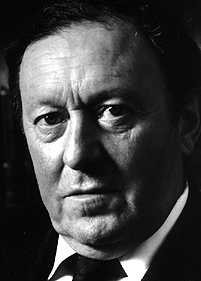Irish writer, politician Conor Cruise O' Brien dies at 91
 Dublin - Irish writer, academic and politician Conor Cruise O'Brien has died at the age of 91, national broadcaster RTE reported Friday.
Dublin - Irish writer, academic and politician Conor Cruise O'Brien has died at the age of 91, national broadcaster RTE reported Friday.
Born in 1917 in Dublin in an Ireland that was still part of the British Empire to a journalist father and teacher mother, O'Brien's early career was as a civil servant in the foreign ministry.
He became a special representative for the United Nations to the Democratic Republic of Congo in the early 1960s and wrote To Katanga and Back in 1962 about Katanga province's secession from the newly independent DR Congo.
In 1969, O'Brien was elected to the Irish parliament as a member of the Labour Party and became minister for posts and telegraphs in 1973.
He was an ardent opponent of the violent struggle against British rule in Northern Ireland and introduced a ban on outlawed organizations like the Irish Republican Army
(IRA) and its political wing Sinn Fein appearing on Irish radio or television.
It was during this period that he wrote about the fractious politics of Ireland - States of Ireland in 1972 - which never seemed to recover from its partition in 1921. In the same year, he compiled a concise history of Ireland with his wife Maire Mac an tSaoi.
He lost his parliamentary seat in 1977, but was elected to the Irish upper house, or Seanad, and served as a senator from 1977 to 1979.
He was editor-in-chief of Britain's Observer newspaper from 1979 to 1981 and wrote a column for Britain's Sunday Independent.
O'Brien was a visiting lecturer and professor of many universities in the US and apartheid-era South Africa, and he was pro-vice- chancellor of the University of Dublin until
1994.
In 1988, he published a collection of essays on the subject of nationalism and terrorism, and his work, The Siege, of 1989 was a positive look at Zionism and the foundation of Israel.
He became a member of the splinter United Kingdom Unionist Party, formed in Northern Ireland in the 1990s to support British rule of the province from London in opposition to the Good Friday Agreement that saw some form of devolved government as a solution to the conflict between Irish nationalists and Northern Irish unionists.
He left the party when his memoirs of 1998 included a call on unionists, who wish to maintain British rule in the northern part of Ireland, to consider their future in a united Ireland.
In 2005, he went back to the Labour Party, which he remained a member of until his death. (dpa)